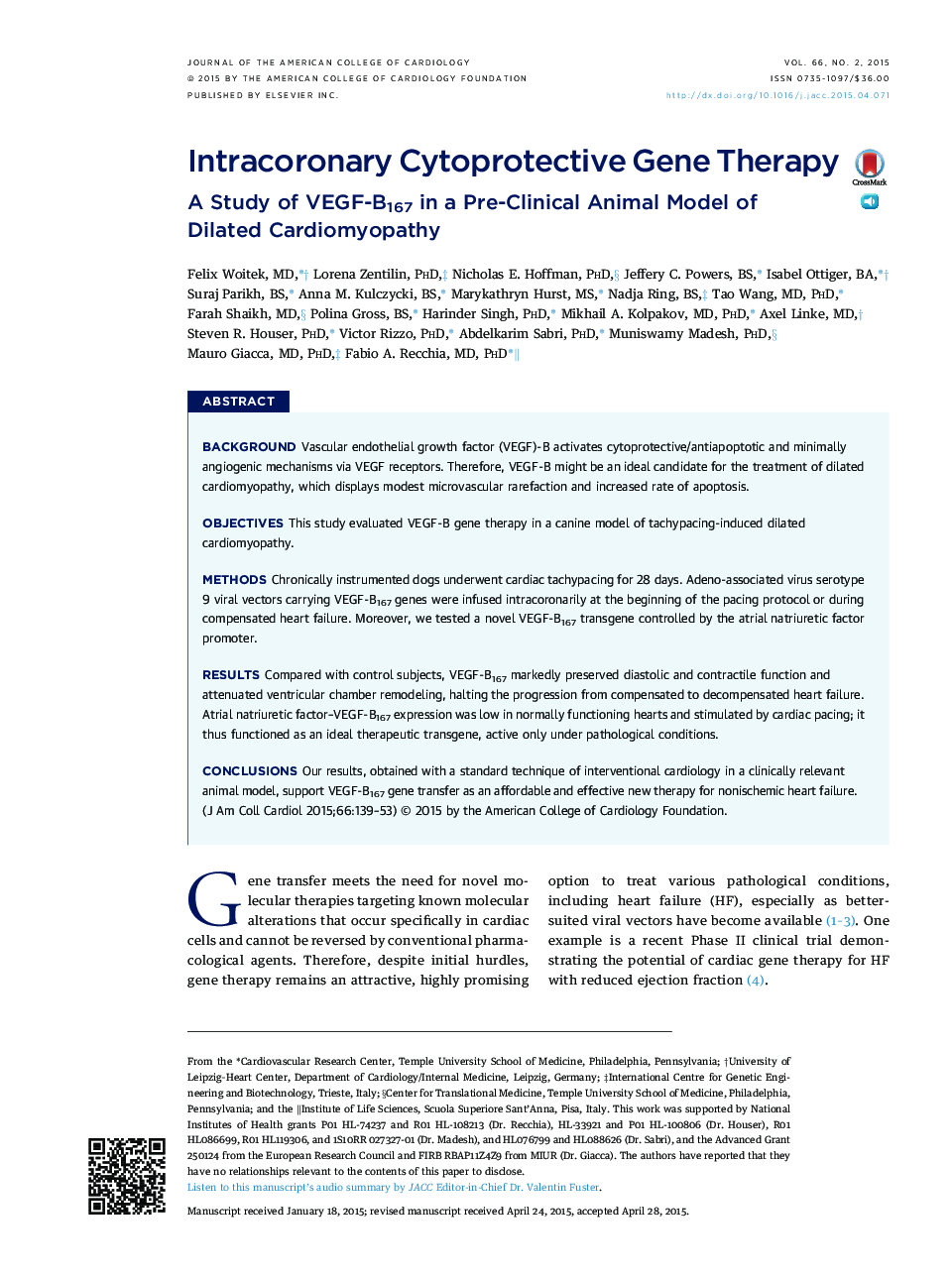| Article ID | Journal | Published Year | Pages | File Type |
|---|---|---|---|---|
| 2943589 | Journal of the American College of Cardiology | 2015 | 15 Pages |
BackgroundVascular endothelial growth factor (VEGF)-B activates cytoprotective/antiapoptotic and minimally angiogenic mechanisms via VEGF receptors. Therefore, VEGF-B might be an ideal candidate for the treatment of dilated cardiomyopathy, which displays modest microvascular rarefaction and increased rate of apoptosis.ObjectivesThis study evaluated VEGF-B gene therapy in a canine model of tachypacing-induced dilated cardiomyopathy.MethodsChronically instrumented dogs underwent cardiac tachypacing for 28 days. Adeno-associated virus serotype 9 viral vectors carrying VEGF-B167 genes were infused intracoronarily at the beginning of the pacing protocol or during compensated heart failure. Moreover, we tested a novel VEGF-B167 transgene controlled by the atrial natriuretic factor promoter.ResultsCompared with control subjects, VEGF-B167 markedly preserved diastolic and contractile function and attenuated ventricular chamber remodeling, halting the progression from compensated to decompensated heart failure. Atrial natriuretic factor–VEGF-B167 expression was low in normally functioning hearts and stimulated by cardiac pacing; it thus functioned as an ideal therapeutic transgene, active only under pathological conditions.ConclusionsOur results, obtained with a standard technique of interventional cardiology in a clinically relevant animal model, support VEGF-B167 gene transfer as an affordable and effective new therapy for nonischemic heart failure.
